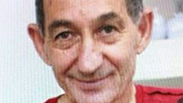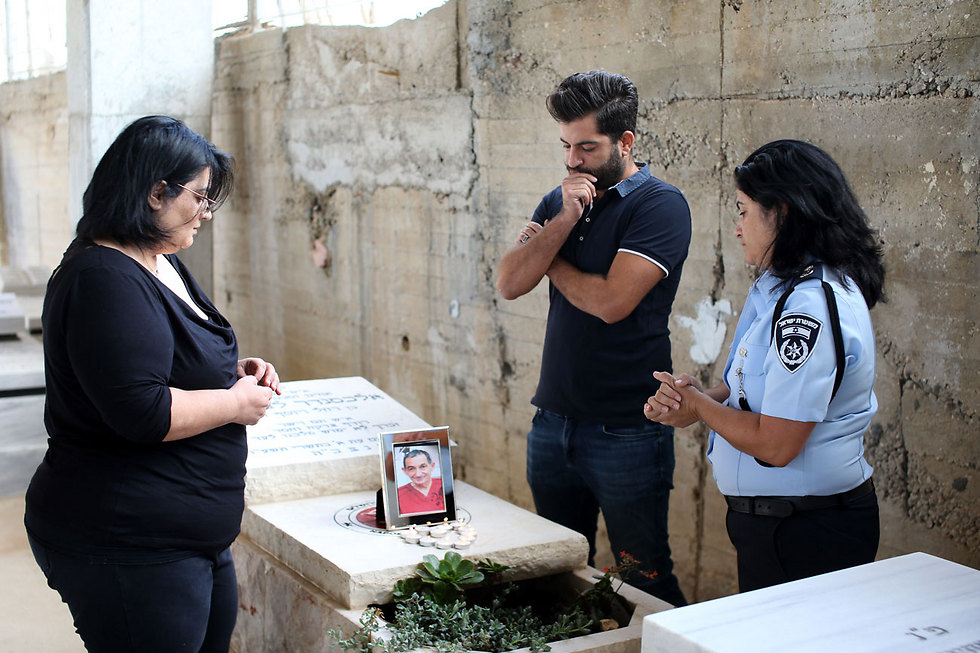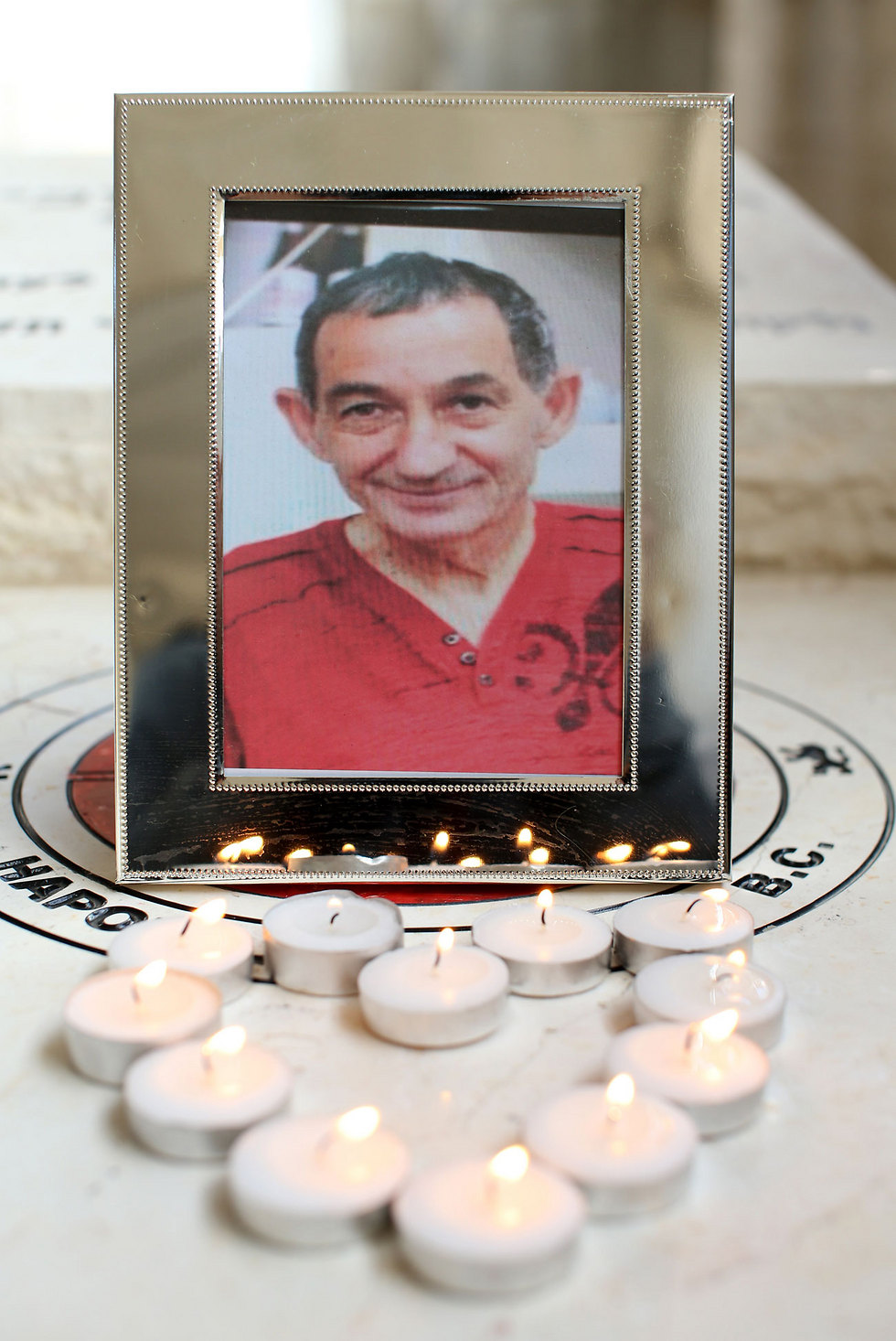
Alexander Levlovich

A year without the first victim of Israel's wave of terror
The children of Alexander Levlovich, who was killed last Rosh Hashana after losing control of his vehicle when Palestinians pelted him with stones, explain how they cope with the tragedy; 'How can I be happy? This time last year my dad was killed.'
One year after Alexander Levlovitch was murdered in the Jerusalem neighborhood of Armon Hanatziv,
his children held a small ceremony Tuesday at a memorial at the spot where he was killed, taking the time to reflect on their thoughts.
Levlovich, 64, was fatally wounded on the eve of last Rosh Hashana—the Jewish new year— when he lost control of his car after it was pelted with stones by Palestinians. He was returning home after a festive meal.
He was the first person to be killed in the wave of terror which claimed the lives of 40 Israelis and injured hundreds between 2015-2016.
“We hoped that dad would be the last victim,” said his son Nir. “Not one of us ever imagined that this was just the beginning.”
With Rosh Hashana now approaching, Levlovich’s children find it difficult to believe that almost a year has past since their father was snatched from them.
“It has been a hard year for the children and for us,” said his daughter Sophie. “People say ‘Happy New Year’ and I feel—How can I be happy? On that evening my father was killed. Every time I hear about this attack it takes me back to the moment when we were told that our dad is dead.”
Nir added, “It is a feeling of needless death. He didn’t die from a serious disease, but because of a violent situation which maybe we could have prevented.”
Levlovich’s 41-year-old daughter works in the Finance Ministry in the department of Coordinator of Government Activities in the Territories. “Two years ago I was debating whether to take the job and my dad asked me why. I answered saying rocks are thrown on the way, I travel in an unarmored vehicle and that there is a good chance that something will happen to me. Dad said to me ‘stop with your nonsense. Close the windows and in the worst case scenario a stone will hit and you will continue your journey.’ Today we understand that stones can kill. In the end, my dad was killed by a stone that was thrown in Jerusalem.”
Her sister Mia, 39, has been a police officer for a number of years and works as an officer responsible for the integration of Muslims in the police. Despite the tragedy which befell her and her family, she said, “My father took care of everyone in a disabled home with dedication from any population. I believe that the murderers are in the minority and do not represent the community.”
The siblings explained that due to the fact that they are all above the age of 30, they are not entitled to any kind of support as children of victims of terror, nor to compensation for work time lost because of the murder such as mourning of other outgoings stemming directly from the tragedy.
However, next week they will realize their father’s dream of opening a new department in a disabled home in Gilo where he worked which will be named after him.

















